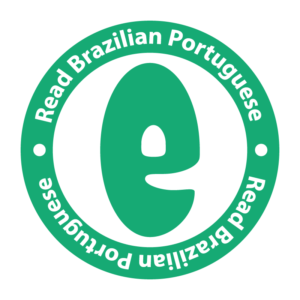What’s All This Hype About Reading Portuguese?
Why should you bother reading Portuguese?
Many Portuguese teachers—present company included—would tell you that reading is the best way to improve your Portuguese.
But you know what, it’s not always like that.
Reading is not for everybody.
Good Reasons to Drive Reading Portuguese Out of Your Mind
First of all, reading and writing are very recent.
Most of the languages we know today have existed in spoken form way before their written form came to be.
You may have met someone who learned English in the United States without even studying it.
And today in Brazil you can find people can’t read a single word on a page but can talk about many subjects at length.
And, children don’t need to be taught their language. They pick it up naturally.
Therefore, reading is not that essential.
And reading more Portuguese doesn’t necessarily mean that you will be able to speak Portuguese. And worse yet, if reading comes too soon, it may even hamper your progress in speaking.
Even though English and Portuguese are written using the Latin alphabet, the way we sound out individual letters and syllables differs greatly. Without knowing the sounds of the language, you may cause bad pronunciation to take root — and once it does, it’s very hard to remove it.
And we all know that we get better at speaking the more we speak.
By reading — and not speaking — you are stealing time away from actual practice.
And, because we have so little time nowadays (what with working remotely), reading more and speaking less is an unfairness to you.
Reading is hard work.
It’s painstakingly slow, you have to stop at every three words to look them up in the dictionary, you can understand all the words in a sentence but can’t really grasp what they mean together… It takes away from the sense of achievement you have when you speak with a tutor or friend for the first time.
Good Reasons to Drive Those “Good Reasons” Away
Okay, those are very solid reasons against reading.
But likewise, we should know that there are good reasons to read Portuguese as well.
First, reading could really get in the way of acquiring very good pronunciation.
That’s why you should never start reading when you can’t speak. But it doesn’t mean that you have to be ultra-fluent in speaking in order for you to read.
A couple of weeks—or mostly for weeks—is more than enough for you to get acquainted with the way the language sounds.
Brazilian Portuguese has only 34 different sounds, and the combinations of those sounds are predictable.
A good teacher knows how to put together a lesson to get you exposed to as many of these sounds as possible.
Besides, this teacher should also know how to organize, plan, and deliver adequate practice so you can get up to speed and start reading soon.
And yes, we can all agree that language exists in spoken form before it exists in written form. But it’s no good argument to justify throwing all reading practice out of the window.
Because when you read, you learn stuff. Not only language: you absorb a new culture. You get in touch with different concepts. You learn new ways to see life.
In other words, you create yourself in another reality.
This sounds “new age-y” but it’s true. With a new language, you discover a new side of yourself you didn’t know before. And, each “self” interacts with each other. It’s more life-transforming than you might imagine.
And if we inspect the “learn like a baby” argument we see it doesn’t hold water.
Granted, children learn languages naturally. But hey, you’re not a child anymore. You’re not acquiring new concepts to describe the reality around you. You already have them.
And let’s face it: you don’t want to talk like a baby.
You’re an intelligent adult human being. You deserve respect, and you know a lot. You want people to know who you are and have interesting, meaningful conversations with them. You want to live, survive, work, function… And although some children do that, it’s not their goal.
And yes, you get better at speaking by speaking a lot, but reading and speaking communicate with each other.
You should never forget that.
So, when Should I Start Reading?
In general lines, you can start reading after one month studying Portuguese.
You may ask yourself: what kind of material should I read?
It’s your lucky day: we have a website that’s just for reading Brazilian Portuguese.
And I would like to ask you: do you like reading? Do you read out of obligation? What kind of books or reading materials do you like? Leave your answers in the comments section below.

At last, you can have fun and improve your Portuguese—without feeling it is a hurdle. Find out how it can change the course of your study for the better.






